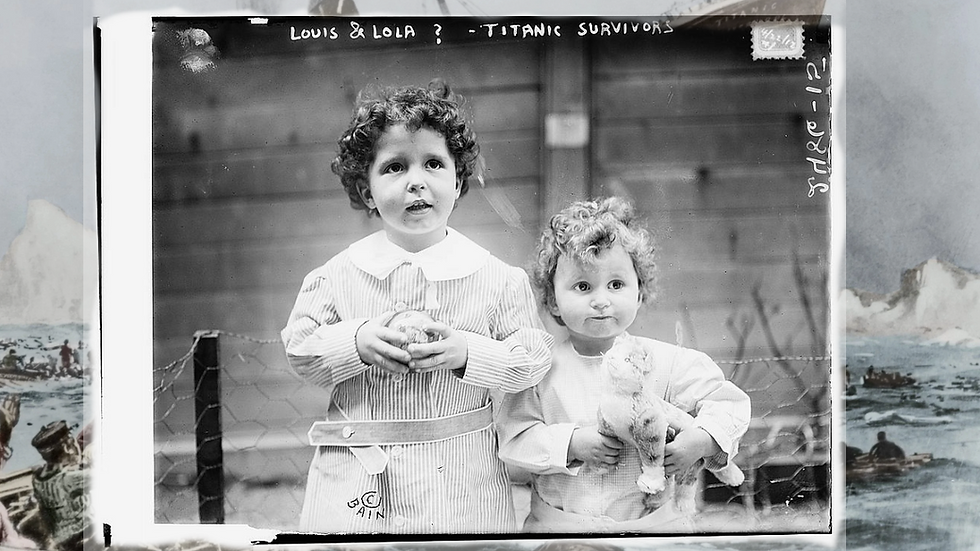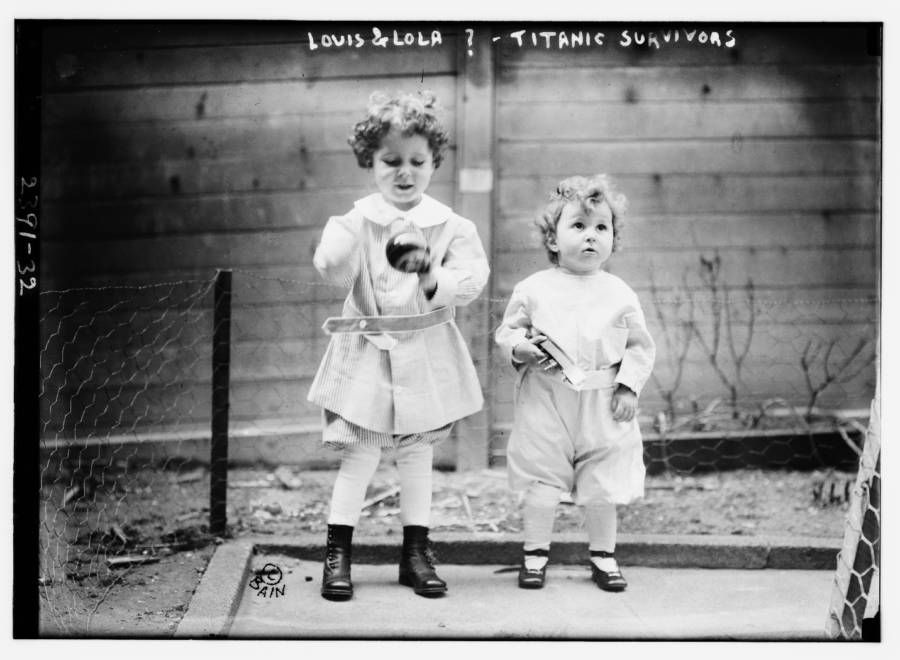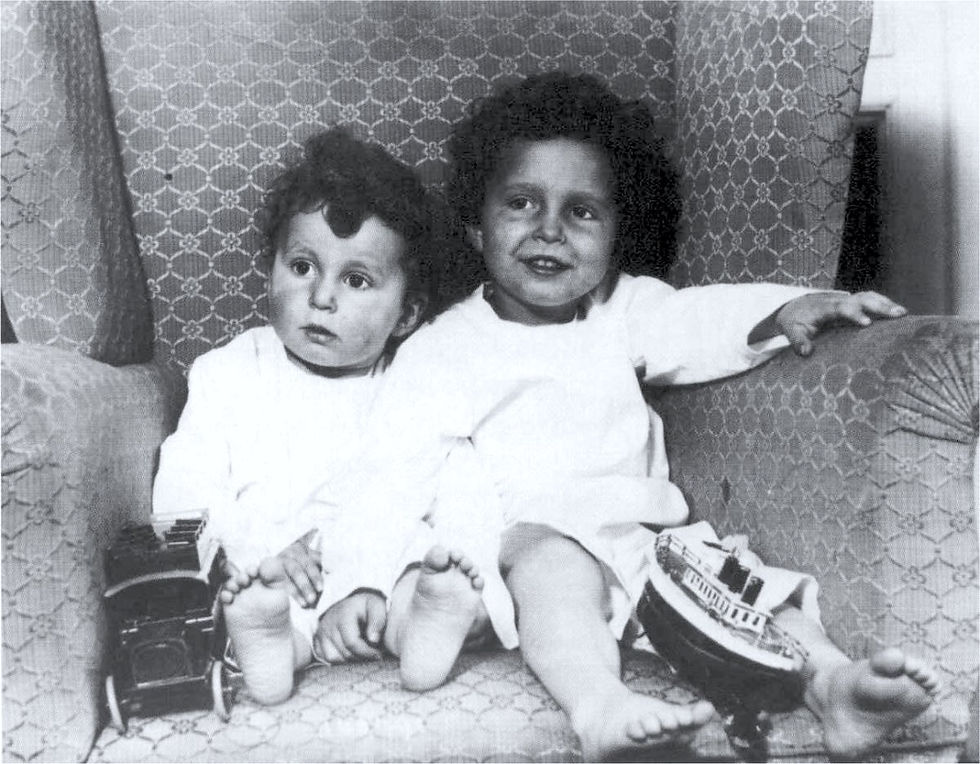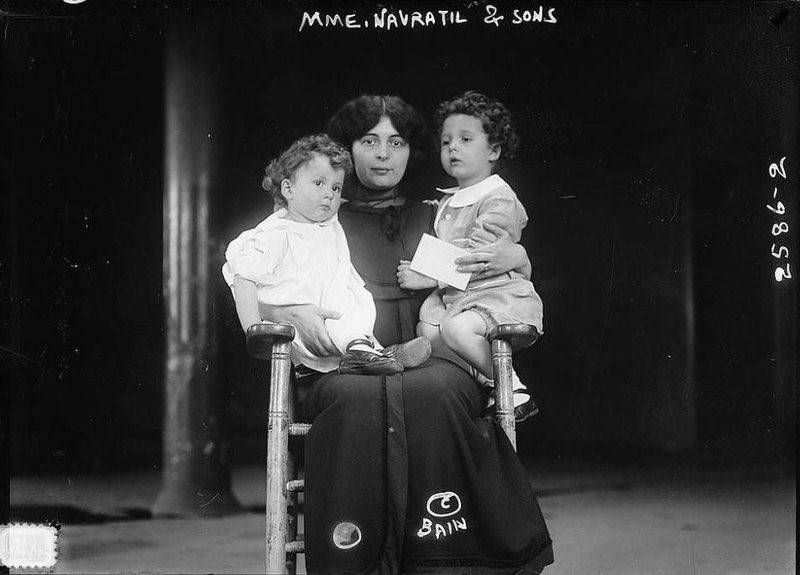The Story of the 'Titanic Orphans': Michel and Edmond Navratil

On the night of April 14, 1912, two young brothers, Michel and Edmond Navratil, found themselves aboard one of the last lifeboats to leave the sinking Titanic. Aged just four and two, the boys became known as the “Titanic Orphans,” the only children to survive the disaster without a parent or guardian. Their story, one of separation and eventual reunion with their mother, has since become a poignant footnote in the history of the Titanic.
A Father’s Last Goodbye
As the ship descended into chaos, Michel and Edmond’s father, Michel Navratil Sr., managed to secure a place for his sons in Lifeboat D, one of the final lifeboats to be launched. It was the last time they would see him, as he remained aboard the Titanic and perished in the sinking.
Before parting, Michel Sr. gave his eldest son a final message for their mother, Marcelle:
“My child, when your mother comes for you, as she surely will, tell her that I loved her dearly and still do. Tell her I expected her to follow us, so that we might all live happily together in the peace and freedom of the New World.”
These words reflected the hope he had for the future—a future in which the family would reunite in America, although he likely knew by then that he would not be part of it.

A Fateful Journey
Michel Navratil’s decision to take his sons to America was motivated by his desire to start a new life. In early 1912, Michel Sr. and his wife, Marcelle, had separated, with Marcelle retaining custody of the children. However, when Michel was given the opportunity to spend Easter weekend with his sons, he decided to take them with him to America without their mother’s knowledge or consent.
After a brief stop in Monte Carlo, Michel and his sons boarded the Titanic in Southampton, where they were registered as second-class passengers. He hoped for a fresh start in the United States, away from the tensions of their separation.
The Night of the Sinking
Despite their young age, Michel and Edmond must have sensed the fear and confusion around them as the ship began to sink after striking an iceberg. The boys were fortunate to be placed on a lifeboat, a fact which Michel, years later, would reflect on.
“I don’t recall being afraid. I remember the pleasure, really, of going plop! into the lifeboat,” Michel said in later life.
While Michel had positive memories of their time aboard the Titanic, playing on deck and enjoying meals in the second-class dining room, the night of the sinking was one of profound loss, as it marked the last time they would see their father.
Louis and Lola: The Orphans
When the RMS Carpathia rescued the survivors, Michel and Edmond were alone and unable to communicate with the crew, as they spoke only French. As a result, they were temporarily known as “Louis and Lola,” the names given to them by the rescuers.

Margaret Hays, a French-speaking passenger aboard the Carpathia, took the boys under her care while authorities tried to trace their family. It was only through newspaper reports, which featured photographs of the two boys, that their mother, Marcelle, was able to identify them.
On May 16, 1912—just over a month after the sinking—Marcelle arrived in New York and was reunited with her sons.
A Mother’s Shock
The reunion between Marcelle and her sons was likely bittersweet. Not only had she been separated from them for over a month, but she also learned that Michel Sr. had intended to take the boys to America without her. The boys’ journey on the Titanic was never meant to include their mother, a reality Marcelle had to come to terms with.

Marcelle had entrusted her sons to their father for a brief visit, only to discover that he had taken them across the Atlantic in the hopes of starting a new life. While she was undoubtedly relieved to have them back, the circumstances of their journey were a difficult reminder of the strained relationship with her late husband.
Life After the Titanic
After their return to France, Michel and Edmond grew up with their mother. Michel, in particular, retained memories of the Titanic, often reflecting on his experience. In later years, he spoke of the contrast between the luxury of the ship and the inequalities that became apparent during the evacuation.
“There were vast differences of people’s wealth on the ship, and I realised later that if we hadn’t been in second-class, we’d have died,” Michel recalled, highlighting how social status played a role in who survived and who didn’t.
The Titanic left a lasting impression on Michel, who would go on to share his recollections of that night with others, contributing to the broader narrative of the disaster.

The Legacy of the Titanic Orphans
The story of the Titanic is well known, often focused on the grandeur of the ship and the tragedy of its sinking. But within that larger narrative, the personal stories of passengers like Michel and Edmond Navratil offer a more intimate glimpse into the human impact of the disaster.
The Navratil brothers survived not because of wealth or status but because of their father’s determination to save them. Their story, one of survival and eventual reunion, serves as a reminder of the many families who were torn apart by the disaster.
Today, the Titanic continues to capture the public’s imagination, with artefacts from the ship resting on the ocean floor, over two miles below the surface. While much attention is given to the ship itself, it is stories like Michel and Edmond’s that bring to life the human experiences behind the history, offering a poignant reflection on the lives lost and the families forever changed by that fateful night in 1912.
Comments